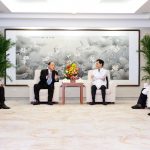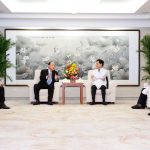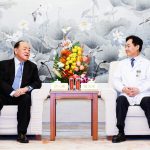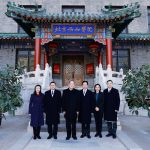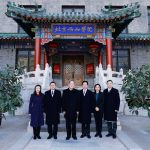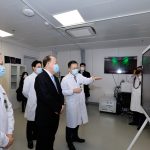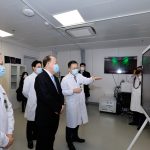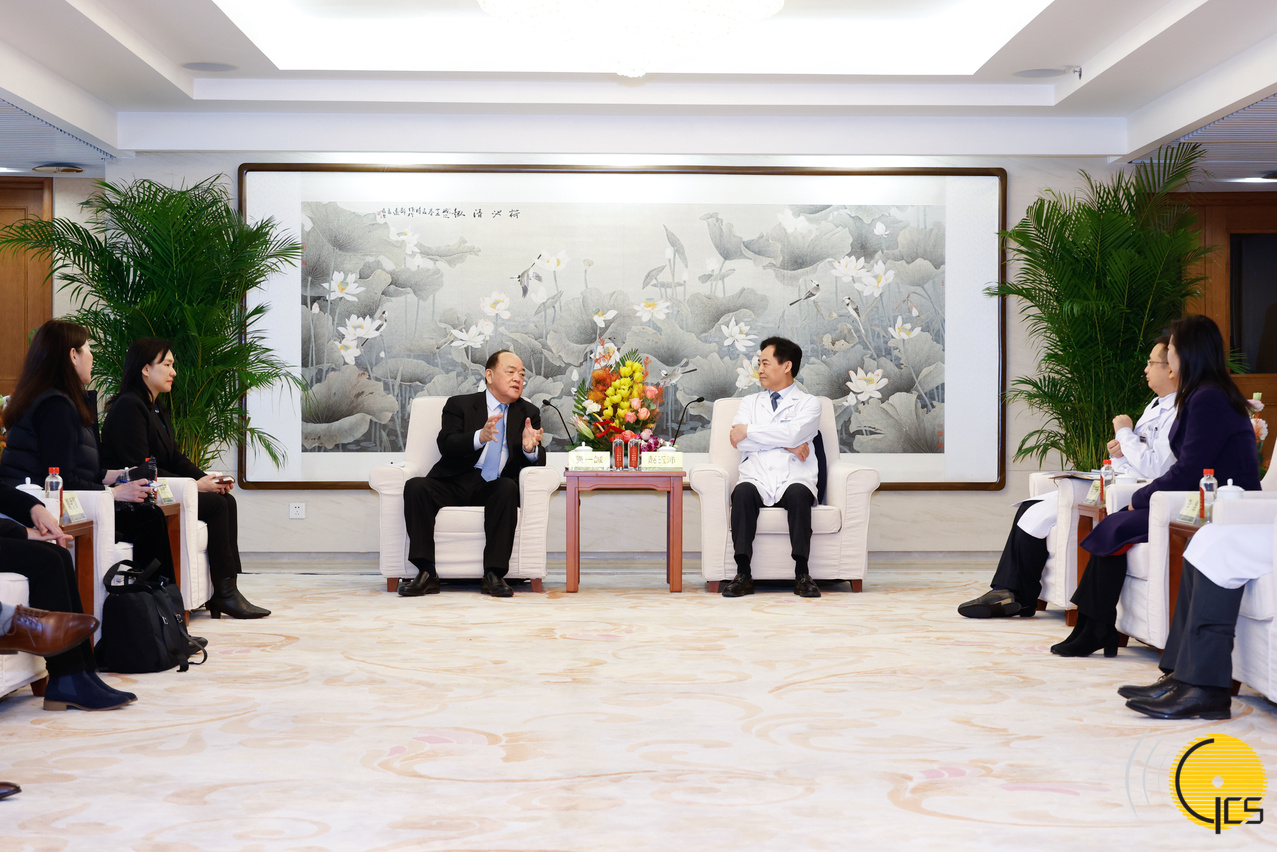 The Chief Executive, Mr Ho Iat Seng, meets with the Honorary President of Peking Union Medical College Hospital, Mr Zhao Yupei, in Beijing.
The Chief Executive, Mr Ho Iat Seng, meets with the Honorary President of Peking Union Medical College Hospital, Mr Zhao Yupei, in Beijing.
The Chief Executive, Mr Ho Iat Seng, today met with Peking Union Medical College Hospital (PUMCH) officials, in order to exchange views on how to strengthen cooperation over Macao’s Islands District Medical Complex.
The meeting was held in Beijing with the Honorary President of PUMCH, Mr Zhao Yupei; and Vice President of PUMCH and Secretary of the Communist Party of China at the institution, Mr Wu Peixin.
The Chief Executive said his meeting at the hospital, during his four-day duty visit to Beijing, increased mutual understanding between the two sides, and would be the basis for furthering cooperation. The state leaders had acknowledged Macao’s partnership with PUMCH and had directed that relevant work should be pursued in an appropriate manner.
With the support of the state leaders and of the National Health Commission – and in partnership with PUMCH – Macao had confidence in its ability to press ahead with work relating to the Islands District Medical Complex.
The future complex was not just to serve the medical needs of the local population, but also it was to be a pivotal point for accelerating in Macao the development of a “big health” industry, said Mr Ho.
The “big health” industry was seen as a crucial way – as envisaged under the Guangdong-Hong Kong-Macao Greater Bay Area, and the Guangdong-Macao Intensive Cooperation Zone in Hengqin – for Macao to step up its adequate economic diversification effort, said the Chief Executive.
Macao – as part of the Greater Bay Area – would be able to target its “big health” industry and specialised medical services to cater to the Greater Bay Area’s 70-million population, said Mr Ho. He made the comment when sharing information about Macao’s “medical + tourism” strategy in relation to the city’s adequate economic diversification effort.
Speaking in the meeting, Mr Zhao said Mr Ho’s visit to PUMCH at the time of its centenary, illustrated the Macao Special Administrative Region (MSAR) Government’s support of, and goodwill toward, the hospital.
The two PUMCH officials said their hospital would spare no effort in fulfilling the requirements of the Central Government, and of the National Health Commission, regarding development of the Islands District Medical Complex, and of working with the MSAR Government to advance progress on the complex.
The signing recently by the MSAR Government and the National Health Commission of a memorandum of cooperation regarding the medical complex, helped clarify PUMCH’s participatory role, and the medical complex’s positioning and direction for healthcare services. Following the signing of the memorandum, PUMCH would be working closely with the MSAR Government, in order to assist the latter in developing a medical regulatory framework for the Islands District Medical Complex, said the PUMCH officials.
Other officials present at the meeting included: Deputy Director of the National Health Commission’s Hong Kong and Macao Affairs Office, Mr Li Wei; and the Chief-of-Office of the Chief Executive’s Office of the MSAR, Ms Hoi Lai Fong.
Before the meeting, the Chief Executive paid a visit to PUMCH’s translational medicine complex, in order to gain a better understanding of the soon-to-be operational facilities in its clinical trial ward; and also its cell biology and biological sampling facilities. Mr Ho additionally visited PUMCH’s museum.
During his visit to PUMCH, Mr Ho paid great attention to the design of its wards and of its facilities overall.


